Removal of anti-Iran sanctions, valid guarantees essential to any deal in Vienna: President Raeisi
Iran’s President Ebrahim Raeisi says any agreement with the P4+1 group of countries in Vienna for the revival of the 2015 deal requires the removal of all anti-Iran sanctions, protection of the Iranian nation's interests, valid guarantees, and closure of political cases.
"In order to reach an agreement [in Vienna], securing the interests of the Iranian nation, especially the removal of sanctions, credible guarantees and closure of the cases of political claims are necessary," Raeisi said at a joint press conference with Qatari Emir Sheikh Tamim bin Hamad Al Thani in Doha on Monday.
He added that the United States must prove its will to remove all the sanctions it has imposed on Tehran following its withdrawal from the Iran deal, officially known as the Joint Comprehensive Plan of Action (JCPOA), three years after its conclusion.
He emphasized that the Islamic Republic has been the winner of both the battle against terrorism and the fight against the campaign of maximum economic pressure.
Former US president Donald Trump unilaterally left the JCPOA in May 2018 and re-imposed the anti-Iran sanctions that the deal had lifted. He also placed additional sanctions on Iran under other pretexts not related to the nuclear case as part of his “maximum pressure” campaign.
Following a year of strategic patience, Iran decided to let go of some of the restrictions on its nuclear energy program, resorting to its legal rights under the JCPOA, which grants a party the right to suspend its contractual commitments in case of a non-performance by the other side.
The US administration of President Joe Biden had voiced a willingness to compensate for Trump’s mistake and rejoin the deal, but it has retained the sanctions as leverage.
Envoys from Iran and the P4+1 group of countries — Britain, France, Russia, and China plus Germany — have been holding negotiations in the Austrian capital for roughly 10 months in a bid to resurrect the JCPOA.
The eighth round of the talks has resumed since February 13 after it was put on pause as diplomats returned to their capitals for consultations.
In a meeting with his Italian counterpart Luigi Di Maio on the sidelines of the 58th Munich Security Conference (MSC) on Saturday, Iran’s Foreign Minister Hossein Amir-Abdollahian said reaching an agreement with world powers through the Vienna talks depends entirely on the United States’ political conduct and the Europeans’ attention to the principles of negotiation, asserting that the US and its European allies would be to blame if the talks founder.
He said Iran intends to reach a good agreement “but whether it takes a few days or a few weeks depends entirely on the behavior and will of the United States and Europe’s attention to the principles and rules of negotiation.”
Elsewhere in the presser, the Iranian president pointed to a new phase in regional developments, adding, "After several decades of aggressive and occupying presence of the arrogant powers, regional countries are now taking the [control of the] region in their hands."
Raeisi emphasized that such a victory has been achieved only through resistance of nations, urging regional countries to hold more consultations and dialogue to handle any crises in the region.
He said, "The three important lessons of the [regional] developments during the last few decades is that first, aggression is doomed to failure, second, resistance is the proper response, and third, none of the problems in the region has a military solution."
The Iranian chief executive further thanked the Qatari Emir for his invitation to visit Doha, noting his current visit to the Persian Gulf kingdom is taking place with the purpose of developing bilateral relations and participating in the Summit of Gas Exporting Countries Forum (GECF).
Elaborating on his meeting with the Emir of Qatar, Raeisi said the two sides agreed that both countries would benefit from the existing capacities and opportunities to boost cooperation and deepen relations in various fields.
Given the territorial proximity and common economic interests, the two sides decided to take serious and new steps to improve relations by diversifying the fields of cooperation, he added.
He said Iran seeks to promote development in regional relations and "this trip will create a new chapter in ties between Iran and Qatar."
The Iranian president added, "The level of current cooperation among regional countries is not commensurate with the huge capacities available and the Islamic Republic of Iran seeks to help strengthen and promote regional relations within the framework of its policy to boost ties with neighbors."
Iran seeks a change in regional relations to boost interaction, cooperation and convergence, he said, adding, "The Islamic Republic of Iran has proved that it always stands by the interests of independent countries and nations."
He stated that he exchanged views on regional issues, including the fight against terrorism, developments in Afghanistan and drug trafficking in talks with the Qatari Emir and they "agreed that the fight against terrorism and its various forms constitutes one of our priorities."
"Iran's capabilities in the successful battle against terrorism in Syria and Iraq creates security not only for the region but for the entire world," Raeisi emphasized.
He urged Afghanistan's neighbors and regional countries to help the war-ravaged country's people and all ethnic and political groups to establish an inclusive popular government, warning, "Otherwise, insecurity will return to this oppressed country."
Pointing to his talks with Al Thani about the Yemeni people, the Iranian president said, "Lifting the siege of this oppressed nation is a humanitarian obligation. An end to the [Saudi-led] aggression and the Yemeni-Yemeni talks are the sole solution to the Yemeni crisis."
Iran once again extends the hand of friendship to all countries in the region, especially Iran's neighbors, to serve the interests of the nations and pursue maximum interaction, he noted.
The Qatari Emir, for his part, hailed the signing of several agreements and memoranda of understanding between Tehran and Doha and urged their immediate implementation.
Referring to his talks with Raeisi about the issue of Palestine as the main issue of the region, Al Thani said they stressed the need to stop the Israeli regime's aggression against the Palestinian people and find a solution based on international resolutions and the right of the Palestinians to self-determination and their peaceful and dignified life.
Iran, Qatar sign 14 documents for cooperation
In the presence of Raeisi and Al Thani, Iran and Qatar inked 14 documents for cooperation between the two countries.
The documents were signed by Iranian ministers of foreign affairs, oil, roads and construction, cultural heritage and electricity and their Qatari counterparts.
According to the documents, Tehran and Doha will boost cooperation in the fields of aviation, trade, shipping, media, foreign policy (visa cancellation), electricity, standards, culture and education.
Iran succeeded in making very big progress despite broad sanctions, threats: Raeisi
In a meeting with Qatari Prime Minister and Minister of Interior Sheikh Khalid bin Khalifa bin Abdulaziz Al Thani later on Monday, Raeisi said Iran has succeeded in making "very big" progress despite the enemies' extensive sanctions and threats in a way that the American officials have recently announced that the US maximum pressure policy against Tehran has failed.
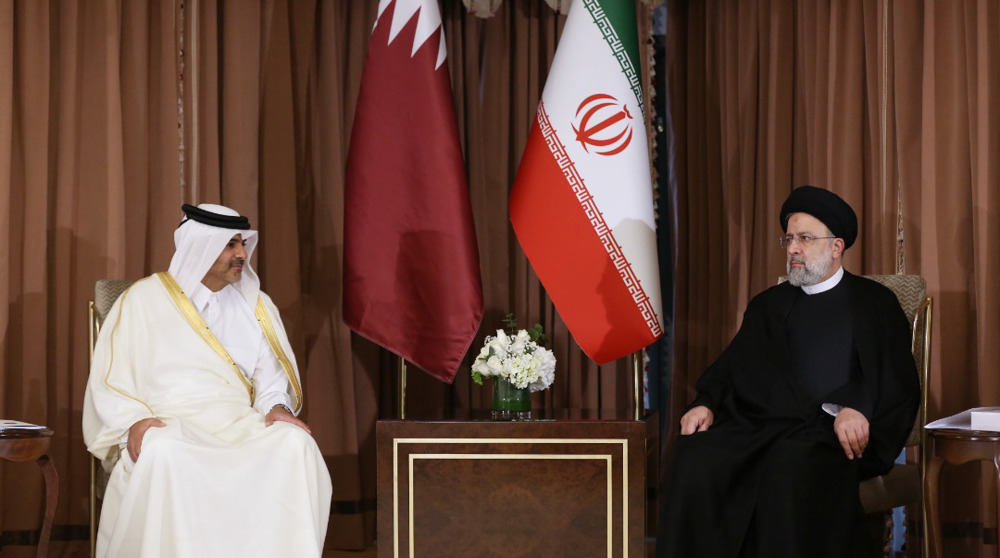
He added that Iran enjoys great capacities which have not been introduced to Qatari economic agents and tradesmen, saying, "The establishment of an Iranian trade center in Qatar can help introduce these capabilities to the Qatari elites and economic agents."
"Today, the Islamic Republic of Iran has made great achievements in various fields of production, industry, technology, nanotechnology, biotechnology and knowledge-based activities which can be shared with the Qatari elites and economic agents in order to improve the level of bilateral interaction," he stated.
The Iranian president emphasized that good relations between Tehran and Doha can lead to constructive regional and international ties.
Raeisi expressed Iran's readiness to cooperate with Qatar to contribute to the better holding of the 2022 FIFA World Cup, which is scheduled to be held in Qatar from November 21, 2022 to December 18, 2022.
The Qatari prime minister, for his part, said Tehran and Doha have great capacities to expand relations, adding that holding constant and regular sessions of the joint commission on bilateral economic cooperation would play an effective role in making use of such potentialities.
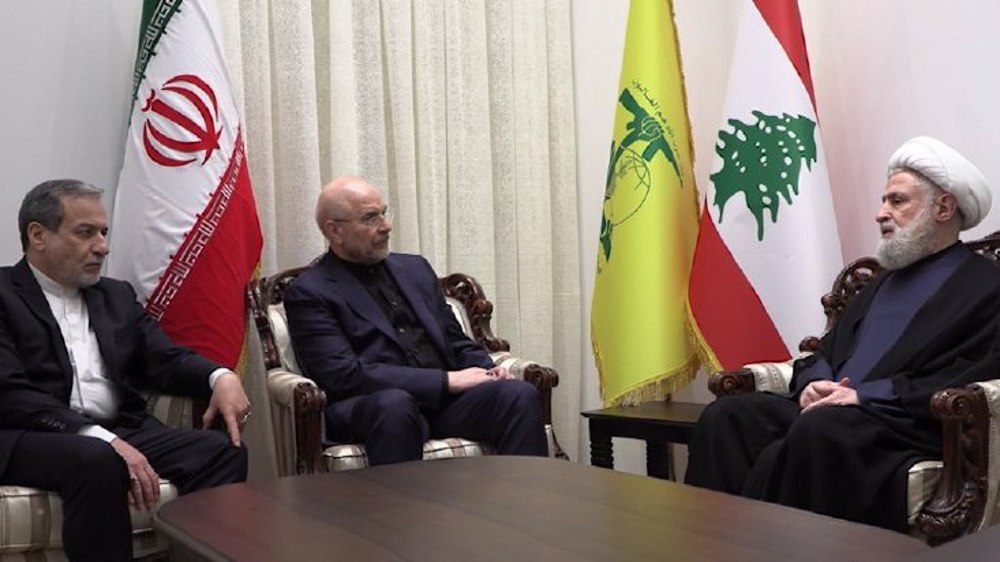
Iran’s parliament speaker, foreign minister meet Hezbollah chief in Beirut
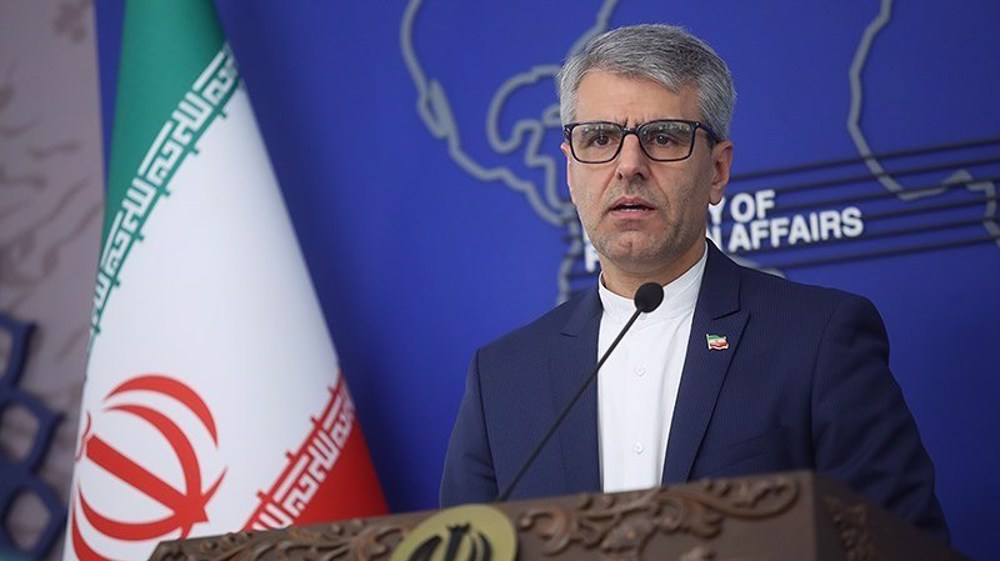
Iran: New sanctions show US 'hostility to well-being' of Iranians
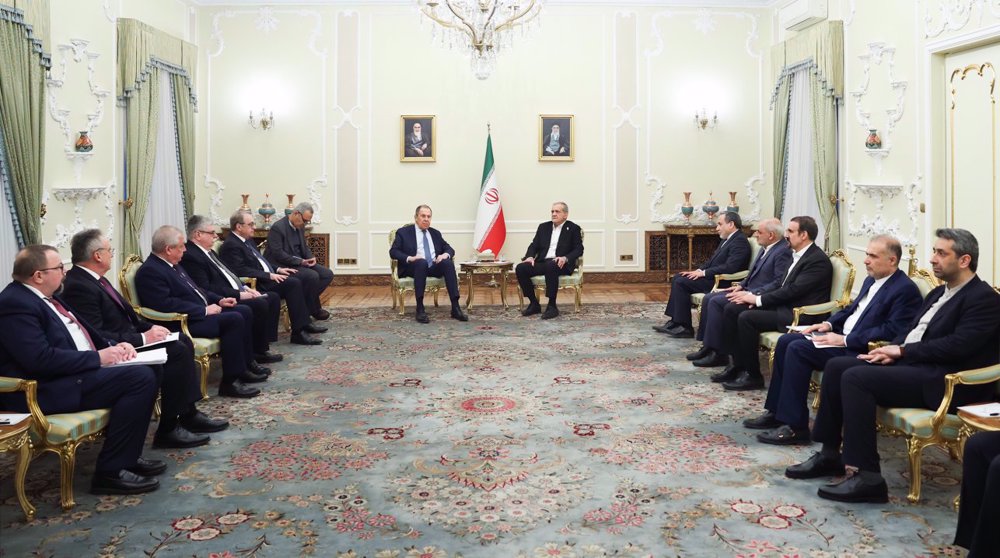
Iran’s president vows to accelerate cooperation with Russia
US official vows to imprison pro-Palestine protesters for years
Arab states condemn Israel's new aggression against Syria
IRGC adds homegrown warship, fast attack craft to naval fleet
VIDEO | Press TV's news headlines
Over 700 bodies recovered in Gaza, most remain unidentified
VIDEO | US TikTok ban
Palestinian youth succumbs to injuries sustained in West Bank strike
US Attorney General hints at Epstein files release amid skepticism


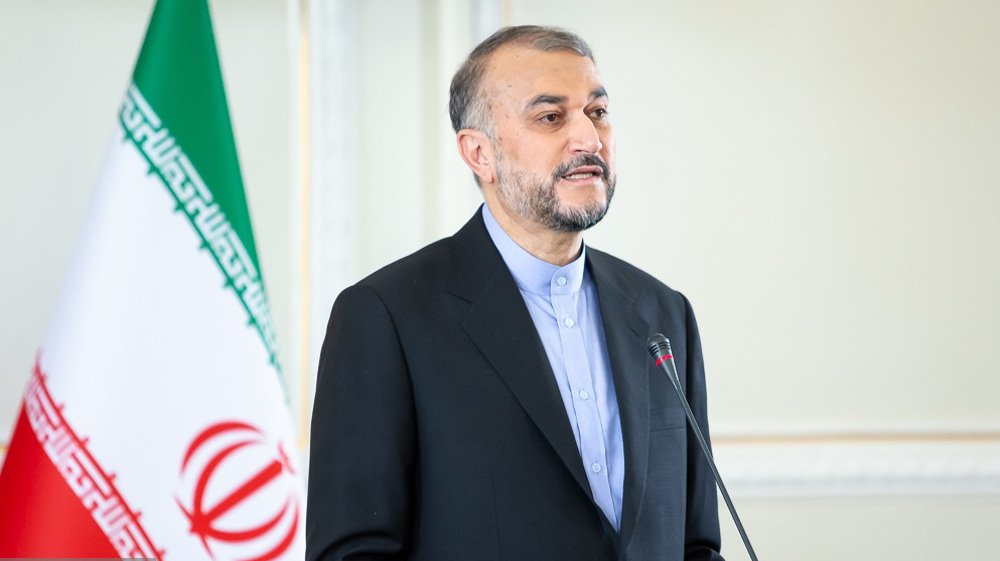
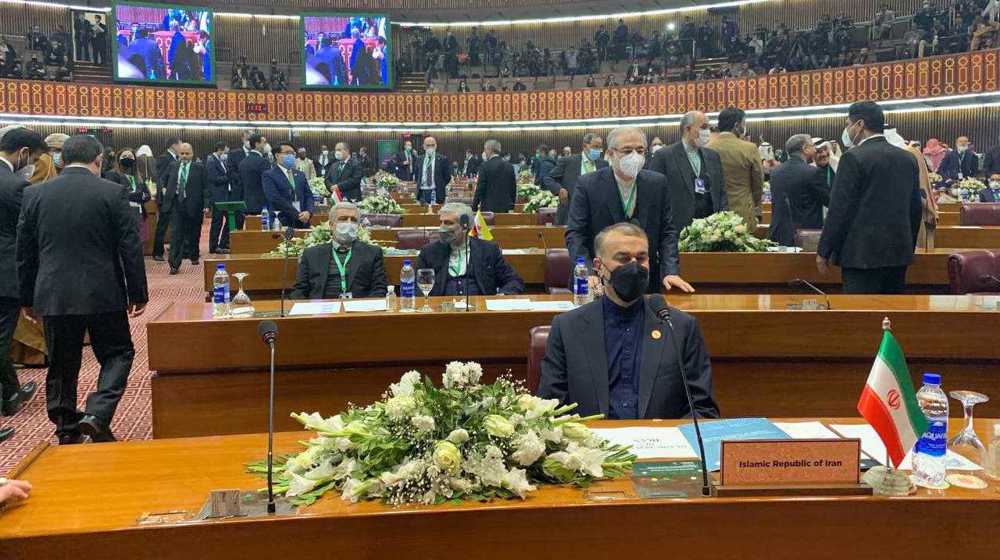
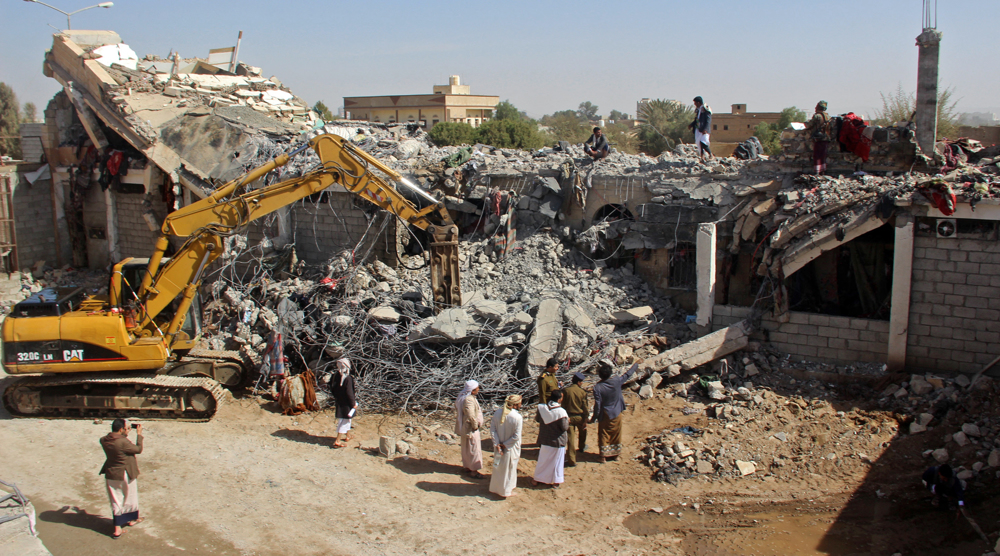




 This makes it easy to access the Press TV website
This makes it easy to access the Press TV website